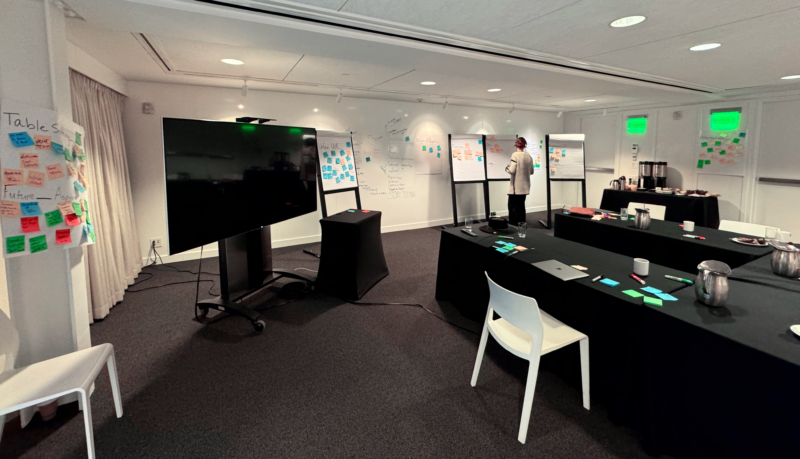Mentorship Matters
Unlock the 'secrets' to leadership and achievement through relentless problem-solving and the untapped potential of mentorship.

I’ve always been a relentless problem solver, but somehow, I felt I lacked the “secrets” to leadership and achievement. I have worked under some of the greats of our industry over the years, flawed humans who seemed to be flawless at what they did professionally. I remember thinking to myself that they had some sort of magic that I’d never have. No amount of eagerness or scrappiness could overcome the voice in my head that maintained the status quo. Sound Familiar?!! Then keep reading.
I got my start at a big agency. Success meant holding secrets close to your chest so only you had the answers. Success came from being the only one with the answers. That may be why the people I called mentors weren’t intentionally mentoring me. They wanted me to succeed, but trial by fire was a right of passage. So I learned by watching, imitating, and being their hands so they could be more successful. This was my ticket to a front-row seat to what I call “Mentorship by proximity.”
What did I witness? How did they always make it look easy?!! I never saw them rehearse for a pitch, and failing was highly discouraged. There was a joke at my agency that creatives were like light bulbs — they burn bright, burn out, and you change them.
I am grateful for my experiences and my mentors — intentional or not, they were brilliant. But I think we can do better. Here’s what I wish my mentors would have told me and why mentorship matters!
What I Wish Someone Had Told Me #1: Effort Matters
In Grit, Angela Duckworth lays out her theory of grit in a quasi-mathematical equation that encapsulates why success depends on effort:
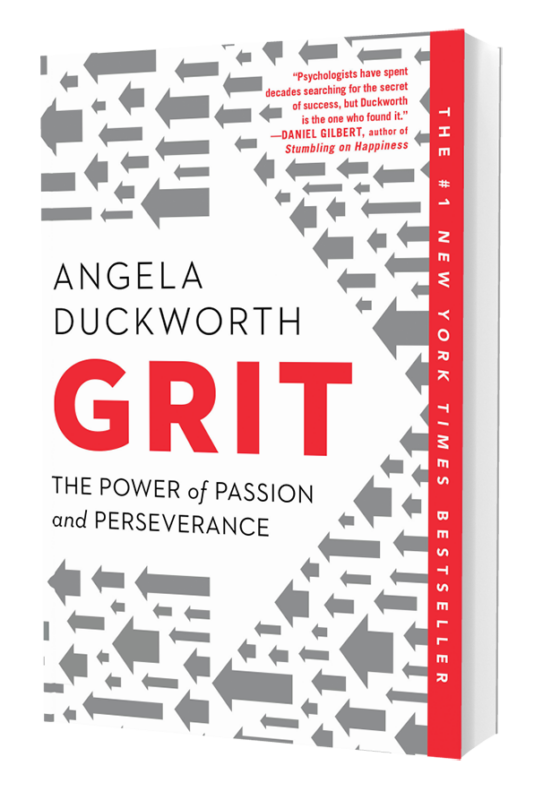
Talent x Effort = Skill
Skill x Effort = Achievement
EFFORT MATTERS TWICE
I always felt I had less talent than my peers. But I worked 10 times as hard to make up for it, and soon, I developed some kick-ass problem-solving skills. Spread that over 25 years, I’ve achieved some crazy things with extra effort. I guarantee if you’ve turned on the TV, you’ve seen my work even if you didn’t know it. (Chrysler, Verizon Wireless, Burger King, Kmart, Natrol) But I still felt lost, and imposter syndrome was real. Only as good as my last win, campaign, or pat on the back.
Effort should push you past your comfort zone. Beyond the comfort zone is the failure zone, and beyond that: success.
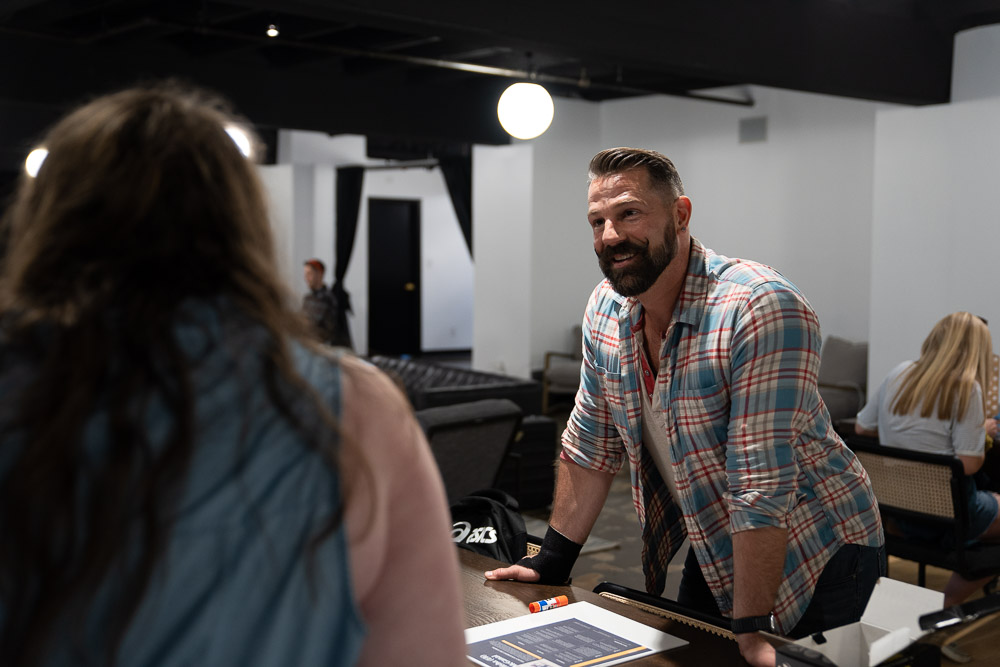
What I Wish Someone Had Told Me #2: Celebrate Failure
The person who fails the most, succeeds the most. Every time you fail, you learn something valuable. If you fail enough, you can collect data points, understand how the system works, and develop the key to beating it. You get crucial information no one else has as long as you don’t make the same mistake twice. So lean into failing, and don’t just lean in — celebrate it ! What do you do when you celebrate? You share, and you let others learn from this new, important data. You create an environment where people aren’t afraid to try. Sometimes I weed through 99 “no’s” for the one “yes” that is brilliant, award-winning, and world-changing. If you get to “yes” too easily, you may not have the best solution.
What I Wish Someone Had Told Me #3: Practice Makes Professionals
I don’t keep secrets from my team. I’m transparent to a fault. I let them see me at my worst so they know there is no secret to my success; there is only hard work and a lot of practice. I CAN PITCH! I know, humble, right?!! I’ll sing, dance, tell jokes, and am the “solid form” of pure energy. Clients think I’m the real deal. How do I do it?!! I practice. I’ll rehearse for hours, sometimes days. If I have to, I try out material on my team, my husband, and my dog. Being “ON” takes practice.
If someone is winging it, they’re not challenging themselves. It takes practice to really optimize what you are capable of.
My hands and voice used to shake when I presented to clients. Sometimes my feet wouldn’t move. I was on the spot and worried about what I might say next…and boy, would I say some dumb things. I didn’t understand how other people were so “gifted” and I wasn’t. Well, in hindsight, it’s not a big leap that they seemed gifted because they practiced and polished behind the scenes. Being gifted doesn’t determine success.
When you don’t need to practice to be good enough, you don’t teach yourself that skill for when you actually will need it. No matter how talented you are, push yourself to where failure lives, then practice so much that you either fail big and learn or win big and learn. ‘Getting by’ leads to mediocrity.
So put in the effort, fail hard, and practice, practice, practice — and above all: be transparent. Someone is looking at you right now, thinking you are gifted and they could never be great like you. Show them they are wrong. Be a good mentor.
What I Wish Someone Had Told Me #4: Mentorship Matters
My journey would have been different if my mentors had been intentful about mentoring. Learning the hard way has its merits, but feeling like you have the right ingredients but no one will share the recipe leads to a lot of time lost through experimentation. If this is you, seek mentorship or lean into self-mentorship. (At one point, I was reading one self-development book a week.) At WeCreate, we were fortunate enough to hire professional mentors for us and our team: Brooke at ngoodcompany.com changed my life. I slowly started understanding and harnessing my effort, my failures, and my relentlessness.
I strove to build a company with my partners (Wade & Katie, you are truly amazing) to do everything differently than I had experienced in this industry. It was interesting how quickly people outside the company told us we couldn’t do “THAT!” That it would fail. That our team would get big heads and would leave. Well, “PEOPLE” were wrong. I found through mentorship and transparency that my unique skills were actually transferable. Our team has become fantastic problem solvers, creatives, and humans.
Mentorship is a two-way street. Mentees & Mentors. And the magic in the middle. 1+1 = more! I know — math, right?!!
Let me phrase that a little differently. If you are building a company or team, consider this: different types of brains can solve different types of problems, and these different types of brains together solve bigger problems. Mentorship creates a collaborative space that can innovate with wisdom. Get where I’m going here?!!
Mentorship Matters: Receiving
When we’re young, we’re fearless. We’re brilliant! We don’t know the rules, so we’re breaking them left and right, and feeling disruptive is its own kind of brilliance. But when we have neuroplasticity without experience — what could go wrong?!!!
This was me. I was the fire my predecessors harnessed to keep their torches lit… I could solve things with that relentless neuroplasticity, but eventually, I burned out. And if you take on all the failures yourself — you will too. The easier route is borrowing others’ failures so you don’t have to.
I call this: annexing other people’s brains.
If someone has hundreds of thousands of failures and they can share them with you, you will be years ahead of your peers. It’s like getting the secrets to the universe. TAKE ADVANTAGE! Slow down… and ask questions. A good mentor will give you their trust, and when you receive trust, give trust back. This is a fair trade. When you are young, you have “fluid intelligence”. This type of intelligence is fast and innovative. Use the data points your mentors offer and your incredible knack of ‘not knowing you can’t’ and solve some big beautiful problems with it. Break rules. Be great!
There is value in what you will earn, and your mentors already have: Wisdom.
You Mentorship Matters: Giving
I just read a great book on aging as a professional called “From Strength to Strength” by Arthur C. Brooks. This book lays out a roadmap for finding Success, Happiness, and Deep Purpose in the Second Half of Life. As we age, our minds change, and that first-half-of-life “fluid intelligence” (the kind that is fast and innovative a la Nikola Tesla) morphs in the second-half into “crystallized intelligence” (more insightful and integrative a la Dalai Lama).
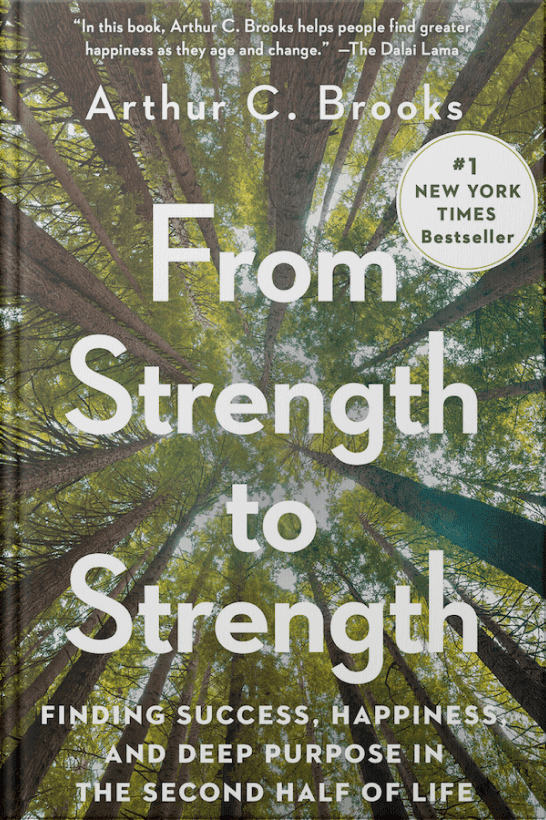
Losing the ability to innovate quickly and solve problems might sound depressing, and it is… unless we lean into our “second curve” and understand our new strength — WISDOM.
We have tried more and failed more than most people ever will. You have libraries of data in your head waiting to be tapped by young minds that have more energy and naïveté to fuel new innovations with the data points only you have. But there’s a catch — your ego. Yeah, I said it. You have to want the next generation to surpass you. To snowball your experience into theirs so that one day your legacy will change the world. Immortality through mentorship is the most beautiful kind of surrender to the universe.
If your success dies with you, the second part of your life will feel like less than the first. Some of the most successful people surrender to depression from never being able to recreate the thrill of their success. Only through wisdom and mentorship can the second half be better than the first.
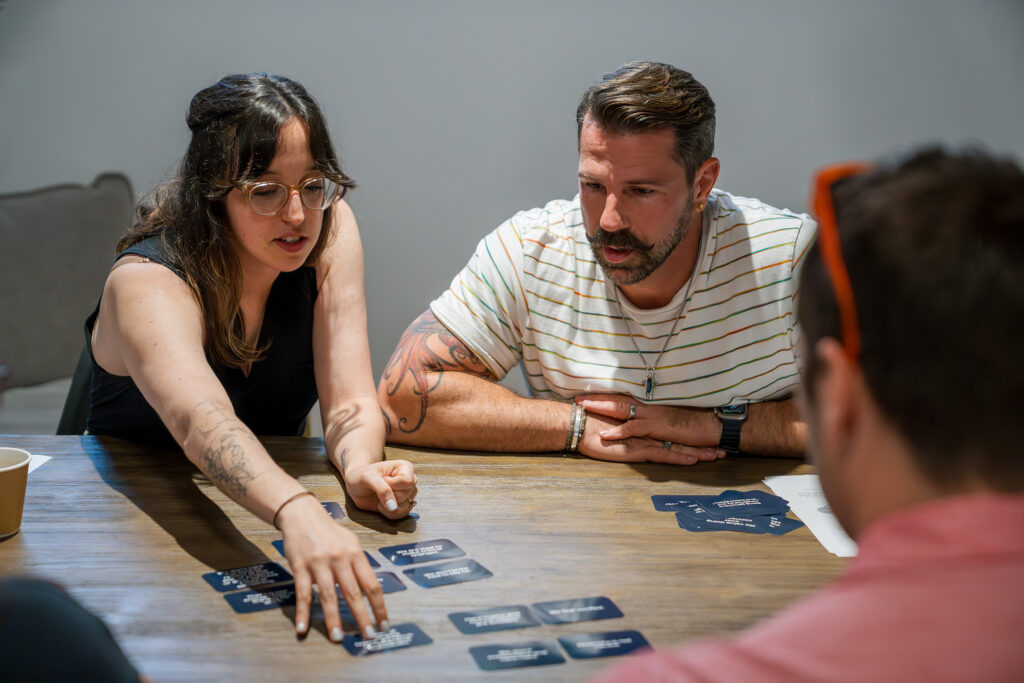
What I Wish Someone Had Told Me #5: We Matter
Whether your brain is still the primordial goo that stars are made from or you think your light is getting dim, you have something to give. You ARE half of a great idea. Half of a world-changing solution. When I say “half” I don’t mean less; I mean that by working together, we can come up with the WHOLE picture. So let’s amplify each other, because we don’t burn out when WeCreate together.
Come be part of the whole picture and work with us!
———-
Most Recent Posts


